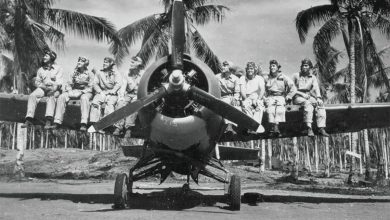IMNHO: Trail of Tears

The young lady hiker was lost in her thoughts as she sat in the summer sunshine, and she didn’t notice me until I said hello. As is common with just about everybody I meet on this trail, her eyes immediately went to the handgun on my backpack’s hip belt.
“Are you armed?” she asked with a bit of fright in her voice.
“Of course. Are you?” I replied.
She smiled, “You sound like my dad.”
That started a conversation in which she asked fair and honest questions. I explained my reasons for carrying a handgun. First and probably most important was that this section of the Appalachian Trail was frequented by a lot of bad people, and some areas not very far from where we stood were a hotbed of drug activity. I also pointed out that over the years there have been several murders along the trail. Then I told her about the rabid coyote that tried to attack me near this spot.
“The bottom line,” I told her, “is that I carry this gun for problems I sincerely hope will never occur. I am betting you have insurance on your car and house, right? Out here in the woods, you have only yourself to rely on and a pistol is the insurance policy.”
“Now you really sound like my dad,” she laughed.
“Your dad is a smart man; you should listen to him.”
“I do,” she said with a smile.
That’s when I realized she never answered my question.
I suppose a bit of context is important. I detest pointless exercise, so I hike those steep trails to stay in shape. They are located in a deep-blue state, and the appeal of well-marked trails attracts a certain segment of society. Over the years, several incidents have illustrated to me the very clear difference in men and women, at least those who hike these trails.
I am the only person I have ever seen there openly carrying a firearm. Most of the folks I meet are, I suspect, against guns. When I encounter a group of hikers going the other way on the narrow trails, I stand aside to let them pass. The women almost always return my hello and smile, while the men will not make eye contact, move to the far edge of the narrow trail and rarely respond to my greeting. Most keep their scared eyes on my gun.
In such instances, I make it a point to look at their hands and about half the time they have their car keys sticking out between their fingers. Apparently that is a tactic that is often taught in certain self-defense classes.
I am harmless, but they don’t know that. So, they are encountering a (usually quite sweaty and shirtless) 220-pound man, with a 5-foot walking stick and a handgun and they think a quarter-inch of key sticking out from between their fingers is going to stop an attack? That is the very definition of delusional.
The thing is, the young lady at the start of this is typical of her gender. Most of the women I meet are friendly and inquisitive. At their request, I have talked to several of them about trail safety and especially how they should have a plan regarding self-defense. A surprising number already do. I have never seen keys in a female hand. That working mind is the principal difference between men and women—at least in this tiny segment of society.
There is a log that serves as a resting place about halfway up a very steep 3-mile trail and there was a young man sitting there with his pack resting beside him. I would have bet my truck there was tofu in that pack. Like so many men, he locked his eyes on my handgun and never wavered.
“Are you a through hiker?” I asked.
Those are the hikers who walk the entire length of the Appalachian Trail, from Georgia to Maine, and they are common on this part of the trail in mid-summer. They are easy to identify by their strong smell and the need for a barber. For the record, I often give them a ride to town to resupply and have found that they can be very interesting people.
This guy was not.
He just stared at my handgun and grunted one-syllable answers to my attempts at human interaction. That included a grunt I interpreted as yes.
“Where are your friends?” I asked.
At that his eyes got very wide but were still locked on my handgun. I saw an opening.
“Soooo, it’s just you and me,” I asked, pausing for a few seconds. I added some verbal emphasis and dragged out the next question, “I guess that means there is nobody else around?”
He went into full panic mode, grabbed his pack and ran down the trail with it, bouncing off trees like the devil was chasing him.
No idea why. I was just trying to be friendly.
Read the full article here









